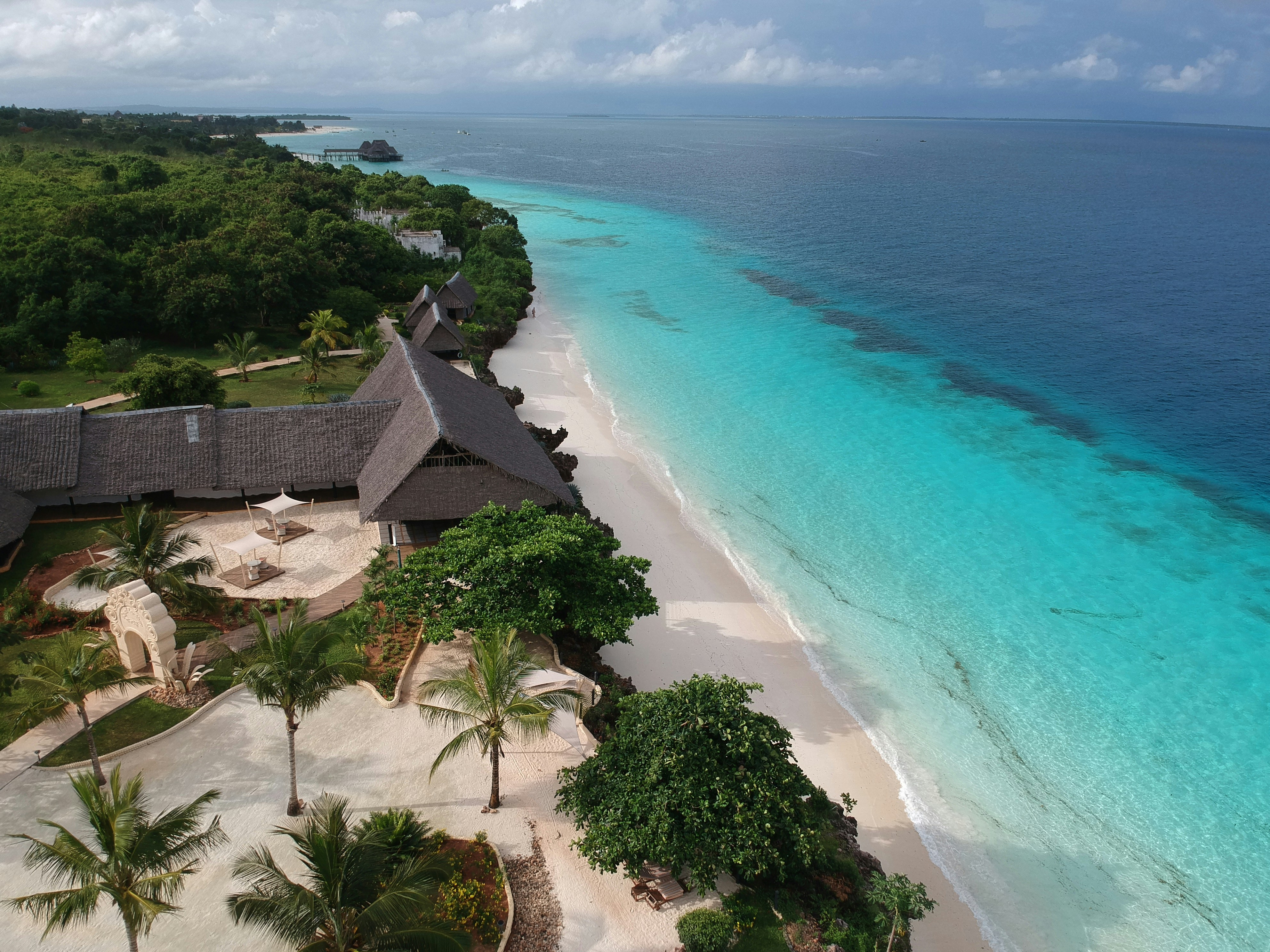Introduction to Sustainable Tourism in Fiji
Sustainable tourism in Fiji is a vital concept that refers to the responsible travel practices aimed at preserving the natural beauty and cultural heritage of this stunning archipelago. Renowned for its breathtaking landscapes, including pristine beaches, lush rainforests, and vibrant coral reefs, Fiji has emerged as a popular destination for travelers seeking both adventure and relaxation. However, with increasing tourist numbers, it has become imperative to adopt sustainable practices to protect these precious resources.

The Fijian islands are not only celebrated for their enchanting beauty but also for their rich cultural heritage, which includes traditional ceremonies, unique crafts, and an intrinsic connection to the land and sea. This cultural diversity is one of Fiji’s greatest assets and plays a significant role in the country’s tourism appeal. Yet, the influx of visitors can put immense pressure on local ecosystems and communities. Consequently, the need for sustainable tourism practices is becoming increasingly crucial to ensure that future generations can enjoy these remarkable experiences.
Choosing sustainable tourism involves making conscientious decisions that help mitigate negative impacts on the environment and local communities. This may encompass various practices, including opting for eco-friendly accommodations, supporting local businesses, and participating in community-led conservation programs. By prioritizing sustainability, travelers can actively contribute to the preservation of Fiji’s natural wonders while enhancing their own travel experience.
As travelers embark on their journeys to these idyllic islands, understanding the significance of sustainable tourism becomes essential. It fosters a deeper connection to the local culture and environment, enabling visitors to appreciate not only the beauty that surrounds them but also the importance of protecting it. In embracing these principles, tourists can ensure that Fiji remains a vibrant and viable destination for years to come.
The Importance of Supporting Eco-Friendly Resorts
In recent years, the global tourism industry has witnessed a growing awareness regarding environmental challenges, making the role of eco-friendly resorts increasingly vital in promoting sustainable tourism. Eco-friendly resorts in Fiji exemplify how hospitality can align with sustainability, adopting practices that conserve natural resources, protect biodiversity, and enhance the overall travel experience while supporting local communities.
Many eco-friendly accommodations in Fiji embrace various green initiatives aimed at reducing their environmental impact. These establishments typically focus on energy conservation through the use of renewable energy sources, such as solar panels. Additionally, they implement water-saving technologies, such as rainwater harvesting systems and low-flow fixtures, which significantly reduce water consumption. By prioritizing these environmentally responsible practices, eco-resorts not only help in minimizing their carbon footprint but also set a positive example for both travelers and the tourism industry at large.
Moreover, eco-friendly resorts often engage with local communities, fostering a sense of collaboration that benefits both residents and visitors. These establishments can incorporate locally sourced materials in their architecture, promote local cuisine in their dining options, or even offer employment opportunities for community members. This approach not only enriches the visitors’ experience by connecting them with authentic local culture, but it simultaneously supports the local economy, ensuring that tourism revenue remains within the community.
When selecting lodging in Fiji, travelers can identify and choose eco-conscious options through a variety of means. Researching a resort’s certifications, such as Green Globe or EarthCheck, can serve as an indicator of their commitment to sustainability. Additionally, reading reviews focused on environmental practices, examining the resort’s waste management strategies, and evaluating their efforts to engage with the local community can aid in making informed decisions. Ultimately, supporting eco-friendly resorts contributes to a sustainable tourism model that protects Fiji’s beautiful landscapes and cultural heritage for future generations.
Engaging in Community-Based Tourism Initiatives
Community-based tourism (CBT) in Fiji provides travelers with a unique opportunity to engage meaningfully with local culture while fostering sustainable development. This approach ensures that tourism directly benefits the communities visited, creating avenues for economic opportunities and cultural exchange. By participating in community-based initiatives, visitors can support local artisans, food producers, and small businesses while gaining insights into traditional Fijian lifestyles.
One prominent initiative is the “Fijian Village Stay” program, where travelers can spend nights with local families. This experience offers guests an immersive glimpse into everyday life, including traditional meals, communal activities, and cultural celebrations. Such interactions not only enrich the visitor’s experience but also help local families earn additional income, promoting economic sustainability.
Another example of community engagement is the “Eco-Tours” facilitated by local cooperatives. These tours are designed to showcase environmental and cultural heritage while ensuring that a portion of the proceeds supports community projects. Visitors can take guided hikes through lush rainforests or snorkeling excursions in coral reefs, all led by knowledgeable locals who share their stories and conservation efforts. This not only fosters respect for Fijian traditions but also encourages the preservation of natural resources.
CBT initiatives often include workshops where tourists can learn crafts, dance, or cooking from community members. This knowledge transfer reinforces cultural identity and empowers local artisans while providing visitors with a cherished souvenir that represents their experience. Furthermore, engaging with local organizations that prioritize community well-being can enhance one’s travel experience in Fiji by allowing deeper connections and understanding of the islands’ rich heritage.
In conclusion, by engaging in community-based tourism initiatives, travelers can enjoy authentic experiences in Fiji while positively impacting local communities. These initiatives not only encourage cultural preservation but also contribute to the economic vitality of the islands, paving the way for a responsible and enriching travel experience.

Respecting Fiji’s Natural Resources
Fiji, renowned for its stunning natural beauty and vibrant ecosystems, faces various challenges due to the impact of tourism. Adopting responsible tourism practices is essential to protect its unique environment. Visitors can play a significant role in preserving Fiji’s natural resources by practicing environmentally-friendly habits throughout their stay.
One of the most popular activities in Fiji is snorkeling and diving. To ensure that these activities do not harm the delicate marine ecosystems, tourists should avoid touching coral and refrain from collecting marine life. Opting for eco-certified tour operators that prioritize sustainable practices can further minimize environmental impact. Many of these organizations provide education on the importance of coral reefs and marine habitats while promoting safe snorkeling and diving techniques.
Protection of wildlife is another crucial aspect of sustainable tourism. Fiji is home to various endemic species, both on land and in the ocean. Travelers should observe wildlife from a distance, resisting the temptation to feed or interact directly with animals. This not only ensures the safety of wildlife but also maintains the natural behaviors they exhibit. Supporting local conservation efforts, such as wildlife rehabilitation centers, can also contribute positively to Fijian ecosystems.
Responsible waste management is pivotal for preserving Fiji’s pristine landscapes. Tourists are encouraged to reduce single-use plastics by bringing reusable bags, water bottles, and utensils. Proper disposal of waste is equally important; travelers should heed local guidelines regarding littering and recycling. Participating in beach clean-up initiatives provides an excellent opportunity for visitors to give back to the community and help maintain the islands’ natural beauty.
By actively engaging in these eco-friendly practices, travelers can ensure that myriads of breathtaking landscapes, marine life, and natural resources are preserved. Making conscientious choices during one’s visit allows for a deeper connection with Fiji and its environment while ensuring that future generations can enjoy its wonders.
Cultural Sensitivity and Local Practices
When visiting Fiji, understanding and respecting local customs is paramount for fostering positive interactions with the communities that make the islands unique. Cultural sensitivity allows travelers to connect more deeply with the Fijian way of life, while also ensuring that the local populace feels valued and respected. This journey into cultural awareness begins with an appreciation of traditional practices, such as the significance of the ‘bula’ greeting, which conveys warmth and hospitality. Learning to embrace such greetings can enhance social interactions and establish rapport with locals.
Additionally, dress codes play a crucial role in demonstrating respect. In many villages, attire should be modest. Women are particularly advised to wear skirts or dresses that cover the knees, and men should avoid wearing swimming attire away from beach areas. Footwear is typically removed when entering homes and certain communal spaces. Adhering to these dress customs reflects an understanding of Fijian values and helps travelers integrate into the local atmosphere harmoniously.
Participation in cultural ceremonies can also engage travelers in meaningful ways. Traditions such as the ‘kava’ ceremony, an integral part of Fijian social life, allows visitors to partake in local rituals respectfully. However, it is essential to approach such experiences with humility and a willingness to learn, rather than taking a performative stance. Furthermore, taking the time to understand local traditions and customs—ranging from food practices to art forms—enriches the travel experience and cultivates greater appreciation for the islands’ heritage.
By embracing cultural sensitivity, travelers not only enhance their experiences but also contribute to the preservation of local traditions. Interacting respectfully with the Fijian people fosters goodwill and sustains the delicate balance required for sustainable tourism, allowing future generations to experience the islands and their rich cultural heritage.
Participating in Conservation and Volunteer Programs
Travelers seeking to engage meaningfully during their visit to Fiji have a myriad of opportunities to participate in conservation and volunteer programs. These initiatives are designed to promote environmental sustainability and enhance the wellbeing of local communities while allowing tourists to gain a deeper understanding of Fijian culture and natural heritage. Various organizations operate across the islands, offering programs that focus on marine conservation, reforestation, wildlife protection, and community development.

One notable program focuses on marine conservation, where travelers can assist in coral reef restoration and monitoring efforts. Participants learn about the delicate ecosystems that thrive in the surrounding waters and contribute to initiatives aimed at protecting these vital habitats. Through hands-on activities such as underwater surveys and restoration projects, volunteers not only enhance their scuba diving skills but also make significant contributions to preserving coral reef health, which is critical for the local marine biodiversity.
In addition to marine projects, programs targeting terrestrial ecosystems are available, such as tree planting initiatives aimed at reforesting areas impacted by deforestation. Volunteers may engage in planting native species, which helps restore the habitat for local wildlife and combats climate change. Engaging in these environmentally focused projects allows travelers to leave a positive impact while fostering a connection with nature.
Volunteering in community-focused initiatives offers another enriching experience. Participants can assist with education programs, health initiatives, or cultural exchange projects, thereby promoting the welfare and empowerment of local residents. Such involvement presents an opportunity for travelers to immerse themselves in Fijian society, leading to meaningful interactions that benefit both locals and visitors alike.
Through these conservation and volunteer programs, travelers do not only contribute to Fiji’s environmental and social goals but also experience the islands in a more authentic and responsible manner. These experiences are transformative, fostering a sense of stewardship among participants, and demonstrating the importance of responsible tourism practices.
Getting Around Responsibly in Fiji
When exploring the stunning archipelago of Fiji, choosing sustainable transport options is essential for minimizing your carbon footprint and supporting local communities. Navigating these picturesque islands can be an enjoyable experience, especially when opting for eco-friendly travel practices that allow you to appreciate the natural beauty and rich culture of this tropical paradise.
One of the most efficient ways to embrace sustainable tourism is by biking. Many islands offer bike rental services that allow visitors to traverse various terrains while enjoying the panoramic views at a leisurely pace. Biking not only promotes sustainable transport but also provides travelers with a chance to engage more closely with local populations and their daily lives. Moreover, biking can foster a deeper connection to the islands, as you can stop at smaller villages, markets, or natural attractions along your route.
Walking is another excellent option for responsible travel in Fiji. Many attractions are located within walking distance of each other, especially in urban areas like Suva and Nadi. By exploring on foot, tourists can immerse themselves in the local atmosphere, discover hidden gems, and interact directly with residents. Walking paths along beaches and through jungles offer breathtaking experiences while ensuring that your impact on the environment remains minimal.
If you prefer public transport, consider using local buses or shared taxis, which are widely available throughout the islands. Utilizing these services supports local economies and reduces the number of individual vehicles on the road. Additionally, these modes of transport often provide travelers with the opportunity to connect with residents and experience authentic Fijian life. Ultimately, opting for biking, walking, or using public transport helps foster sustainable tourism practices, allowing visitors to explore all that Fiji has to offer responsibly.
Supporting Local Businesses and Artisans
One effective way for travelers to engage with sustainable tourism in Fiji is by supporting local businesses and artisans. The act of purchasing from local craftspeople not only enriches the travel experience but also plays a crucial role in strengthening community resilience. Local artisans produce unique, culturally significant handicrafts that reflect Fijian heritage, and purchasing these items directly contributes to their livelihood.
By choosing to buy locally sourced goods, travelers help stimulate the local economy, ensuring that revenues stay within the community. This practice promotes economic sustainability, allowing local artisans to thrive and preserve traditional skills for future generations. Moreover, supporting local businesses reduces the carbon footprint associated with mass-produced goods, making it a more environmentally friendly option. Travelers can find an array of authentic Fijian products, such as handwoven baskets, intricate wood carvings, and vibrant textiles, at local markets and artisan shops across the islands.
For those looking to explore the cultural richness of Fiji, visiting places like the Suva Handicraft Centre or local markets in Nadi provides opportunities to interact with artisans and learn about the traditional techniques used in their crafts. Not only do these purchases make for memorable souvenirs, but they also help foster a sustainable tourism model that is beneficial for both visitors and locals alike. Additionally, some shops operate on a fair-trade model, ensuring that artisans receive fair compensation for their work.
In essence, taking the time to seek out and invest in local arts and crafts is a rewarding way to participate in sustainable tourism in Fiji. By supporting local businesses and artisans, travelers can make a meaningful impact while enriching their travel experience with authentic Fijian culture and craftsmanship.
Conclusion: The Future of Sustainable Tourism in Fiji
As we look toward the future, the significance of sustainable tourism in Fiji becomes increasingly clear. The islands, characterized by their breathtaking natural beauty and rich cultural heritage, are at a crossroads. The increased attention from global travelers poses both an opportunity and a challenge for local communities and ecosystems. Implementing sustainable practices is not merely desirable; it is essential for the preservation of Fiji’s unique environment and diverse cultures.
Travelers bear a considerable responsibility to uphold these values. By adopting practices such as selecting eco-friendly accommodations, supporting local businesses, and minimizing waste, visitors can make a tangible impact. Small, individual actions collectively contribute to maintaining the integrity of Fiji’s natural surroundings. When travelers prioritize sustainability, they help ensure that future generations can experience the islands as they were intended—pristine and thriving.
Moreover, fostering cultural exchange with the local population enriches the travel experience and enhances communal resilience. By participating in culturally immersive experiences, such as traditional crafts and local cuisine, travelers not only learn about Fijian heritage but also help promote its continuation in a respectful and mutually beneficial manner. This approach encourages a reciprocal relationship where the benefits of tourism are shared and contribute to the well-being of the host community while preserving their traditions.
In conclusion, the viability of sustainable tourism in Fiji demands a collaborative effort. It requires the commitment of both locals and visitors to cherish and safeguard the islands’ natural and cultural wealth. As we move forward, let us remain dedicated to practicing sustainable tourism, recognizing that our choices and actions significantly influence the future of these enchanting islands. Every traveler has the ability to make a difference, and together, we can ensure that Fiji remains a cherished destination for years to come.






